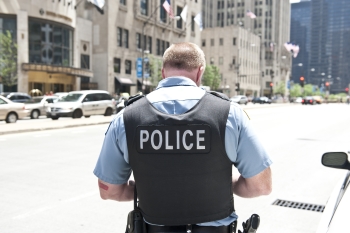
Police Officers & Trauma Therapy in Philadelphia Police officers jobs require them to control their emotional reactions, even when faced with very emotionally overwhelming situations. For instance, when talking with a child who has been sexually abused, an officer might feel great anger, sadness, shock, horror, etc. but he/she must keep composed. A police officer cannot reveal shock, disgust, sadness or fear in these situations because he or she has to simultaneously maintain control and power in front of the community they are serving, as well as their fellow police officers. As one female officer explained to me, “You have to learn to be cold because you can’t let every case get to you. You must say this is a case, not a person. It’s horrible but you won’t survive otherwise.” Police officers are taught to suppress and ignore natural human reactions to incredible circumstances. To reveal fear, confusion, anger or sadness could be interpreted as not knowing what to do or not knowing how to handle a situation. Both the public’s view of police officers and their own fellow officers, expect them to know how to handle extremely stressful situations and to not be effected by them, which is humanly impossible.
While it is appropriate and often necessary to conceal emotional reactions on the job, the emotional reactions a police officer has to the stressful situations they face on the job must be released or addressed in some way. If not, the police officer will likely become emotionally numb. Emotions are a package-deal. If a police officer is numbing himself/herself to avoid the shock, frustration, sadness, anger, etc. he/she felt in reaction to a situation at work, he/she is likely numbing himself/herself to positive emotions like happiness, hope, desire, love, etc.
The concealing of normal human reactions can carry over to other aspects of a police officer’s life, especially in the officer’s family life. As one high ranking officer explained, “It is important to communicate with your wife and family more. If you stop talking about it, [the job] that adds more stress. It is very important to have a life outside of the job. Since officers are constantly telling people what to do, we carry this home. My kids used to say, ‘Dad you’re treating me like an inmate.’ Sometimes I forget to ask my wife about certain decisions too when it should be a joint decision.” If you are numbing to avoid emotional reactions, you might be shutting our one of your biggest allies, one of your strongest supports—your family. While you may be withholding your feelings of sadness, fear, frustration with your family, you’re likely also withholding your feelings of joy, love and playfulness.
Reflect on the questions below to explore how your emotional numbing may be affecting your family (trauma recovery):
- How often do you feel numb (you may feel in a daze or spaced out, detached or empty)?
- Which aspects in police work are most distressing for you?
- In thinking about the distressing or upsetting aspects of your job, what emotions come up for you?
- Are there certain situations in police work that trigger you to feel emotionally numb?
- How do you cope with these stressful situations at work? Consider both positive and negative ways you are coping.
- How do your positive coping mechanisms impact your partner? Your children?
- How do your negative coping mechanisms impact your partner? Your children?
- How do you communicate your needs when coping with a stressful situation at work to your partner? Your children?
- In what ways do you effectively communicate your needs? What works?
- In what ways are you ineffective in communicating your needs? What does not seem to work?
- When you finish your shift, how do you feel about going home to your family?
- Considering that all families have their ups and downs, in general how do you feel spending time with your family?
- How often do you share with your partner something upsetting or stressful that happened to you at work?
- If you do share with your partner, what have been the positives to sharing? What negatives have come as a result of sharing with your partner?
- If you do NOT share with your partner, what have been the positives to NOT sharing? What have been the negatives to NOT sharing?
- If you share with your partner something upsetting or stressful that happened to you at work, what makes it easy to share this experience? What makes it difficult?
- How often do you feel connected to your partner? To your children?
- How has police work positive impacted your role as a partner? As parent?
- How has police work negatively impacted your role as a partner? As a parent?
- How often do you express your gratitude and love for your partner? How do you express it? How do you know your partner feels appreciated and loved?
- How often do you express your gratitude and love for your children? How do you express it? How do you know your child or children feel appreciated and loved?
Police officers, may benefit from trauma therapy. We offer police officers Trauma Therapy in Philadelphia. Call today to schedule an appointment 267-324-9564.



























